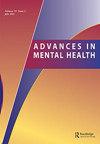Suicide prevention gatekeeper training for those supporting refugees and asylum seekers: perspectives of participants
IF 1.7
Q3 PSYCHIATRY
引用次数: 3
Abstract
ABSTRACT This research explored participants’ experience and perceptions of a two-day suicide prevention education programme, and any impact that it has had on them and their work with refugees and asylum seekers since. At approximately six months post-training (May to September 2018), semi-structured telephone interviews were conducted with 15 participants. The interviews were audio-recorded, transcribed, and thematically analysed. Thematic analysis of the data identified two overarching themes and five subthemes. The two overarching themes were: (1) Changes to the individual and their practice; and (2) The culture and context of the work. Participants described a range of impacts that the training had on them and their workplace, in both personal and professional domains. The study findings suggest that equipping workers with skills and knowledge in culturally tailored and evidence-based suicide prevention can lead to an increased sense of hope, optimism, confidence, and agency and reportedly enabled workers to more readily intervene when presented with clients directly or indirectly communicating suicidal ideation. Findings support existing literature regarding gatekeeper training effectiveness. However, given the unique context of asylum seeker and refugee suicide, they also extend our understanding of the impact of bespoke or tailored approaches to gatekeeper training.为支持难民和寻求庇护者提供自杀预防看门人培训:参与者的观点
本研究探讨了参与者对为期两天的自杀预防教育计划的体验和看法,以及该计划对他们和他们在难民和寻求庇护者方面的工作产生的影响。在培训后大约六个月(2018年5月至9月),对15名参与者进行了半结构化的电话采访。访谈录音、文字记录和主题分析。对数据的专题分析确定了两个总体主题和五个次级主题。两个主要的主题是:(1)个人及其实践的变化;(2)工作的文化和背景。参与者描述了培训对他们及其工作场所的一系列影响,包括个人和专业领域。研究结果表明,为员工提供文化定制和循证自杀预防方面的技能和知识,可以增加希望、乐观、自信和能动性,据报道,当客户直接或间接地传达自杀意念时,员工可以更容易地进行干预。研究结果支持关于看门人培训有效性的现有文献。然而,鉴于寻求庇护者和难民自杀的独特背景,它们也扩展了我们对定制或量身定制方法对看门人培训的影响的理解。
本文章由计算机程序翻译,如有差异,请以英文原文为准。
求助全文
约1分钟内获得全文
求助全文

 求助内容:
求助内容: 应助结果提醒方式:
应助结果提醒方式:


